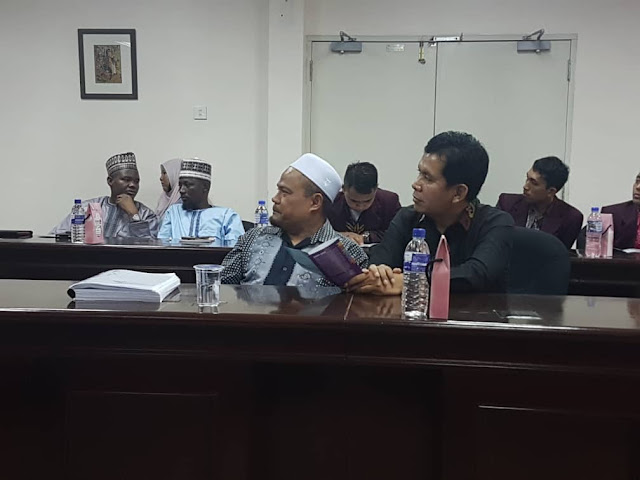It is not righteousness that ye turn your faces toward East or
West; but it is righteousness to believe in Allah and the Last
Day and the Angels and the Book and the Messengers; to spend of
your substance out of love for Him for your kin for orphans for
the needy for the wayfarer for those who ask and for the ransom
of slaves; to be steadfast in prayer and practice regular
charity; to fulfil the contracts which ye have made; and to be
firm and patient in pain (or suffering) and adversity and
throughout all periods of panic. Such are the people of truth
the Allah-fearing. 177 178 179
180 181 [Translation of al-Baqarah, 2: 177 by Abdullah Yusuf Ali.]
Notes:
177 - As if to emphasise again a warning against deadening
formalism, we are given a beautiful description of the
righteous and God-fearing man. He should obey salutary
regulation, but he should fix his gaze on the love of God
and the love of his fellow-men. We are given four heads:
(1) our faith should be true and sincere; (2) we must be
prepared to show it in deeds of charity to our fellowmen;
(3) we must be good citizens, supporting social
organisation; and (4) our own individual soul must be
firm and unshaken in all circumstances. They are
interconnected, and yet can be viewed separately.
178 - Faith is not merely a matter of words. We must realise
the presence and goodness of God. When we do so, the
scales fall from our eyes: all the falsities and fleeting
nature of the Present cease to enslave us, for we see the
Last Day as if it were today. We also see God's working
in His world and in us; His Powers (angels), His
Messengers and His Message are no longer remote from us,
but come within our experience.
179 - Practical deeds of charity are of value when they proceed
from love, and from no other motive. In this respect,
also, our duties take various forms, which are shown in
reasonable gradation: our kith and kin; orphans
(including any persons who are without support or help);
people who are in real need but who never ask (it is our
duty to find them out, and they come before those who
ask); the stranger, who is entitled to laws of
hospitality; the people who ask and are entitled to ask,
i.e., not merely lazy beggars, but those who seek our
assistance in some form or another (it is our duty to
respond to them); and the slaves (we must do all we can
to give or buy their freedom). Slavery has many
insidious forms, and all are included.
180 - Charity and piety in individual cases do not complete our
duties. In prayer and charity, we must also look to our
organised efforts: where there is a Muslim State, these
are made through the State, in facilities for public
prayer, and public assistance, and for the maintenance of
contracts and fair dealing in all matters.
181 - Then come the Muslim virtues of firmness and patience.
They are to "preserve the dignity of man, with soul
erect" (Burns). Three sets of circumstances are
specially mentioned for the exercise of this virtue: (1)
bodily pain or suffering, (2) adversities or injuries of
all kinds, deserved and underserved and (3) periods of
public panic, such as war, violence, pestilence, etc.
Compare Translation:
Source (Credit To):
http://www.alim.org/library/quran/ayah/compare/2/177


















